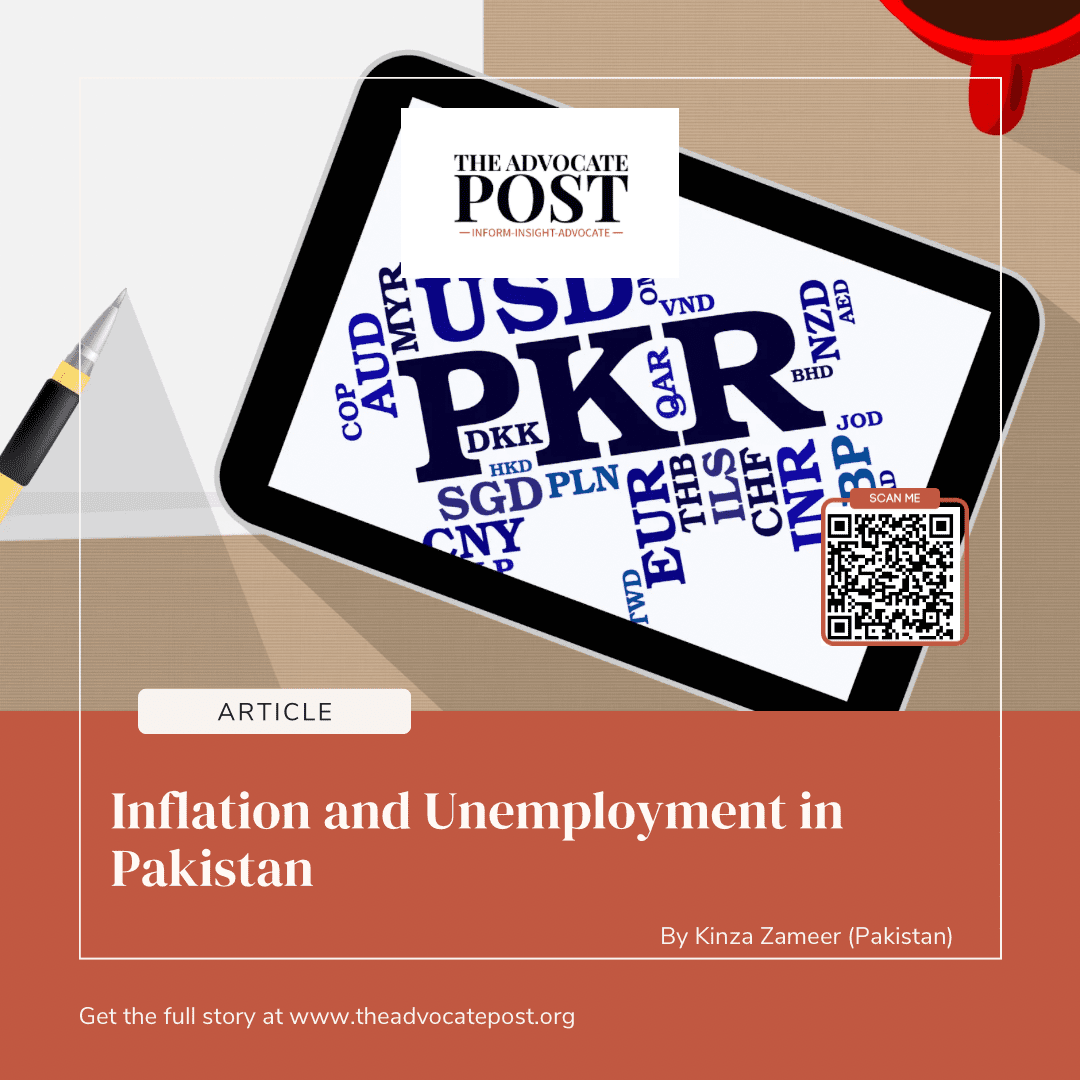By Kinza Zameer (Pakistan)
A Low unemployment often corresponds with higher inflation. Inflation declines in high unemployment
situations. Voters and policymakers favor low inflation and low unemployment, but not declining prices.
Usually, they have to choose between the two and make a trade-off. Unemployment is a key indicator of
the health of an economy.
An economy’s progress depends on how well its human resources are used. However, underutilization of human resources is a significant issue that harms the economies of developing countries such as Pakistan.
Pakistan’s high unemployment rate is attributed to several macroeconomic problems. In light of this, the
goal of this research was to investigate Pakistan’s jobless patterns during the previous ten years and
determine the extent to which macroeconomic factors, such as GDP expansion and inflation, have a
positive or negative impact on the nation’s unemployment rate. Collect data so that policy
recommendations can be made to assist Pakistan in addressing its high unemployment rate.
The majority of Pakistan’s population struggles to live a happy life due to unemployment; despite their
high level of education, they are unable to secure satisfactory jobs. People break their own rules in life
because they are unable to satisfy their needs. This usually results in them working illegally. Some of the
common factor of inflation are higher interest rates, higher prices for everything, economic growth slows,
anti-Inflationary measures can cause a recession.
Political stability has a big impact on inflation because less stable governments are more likely to
implement the inflation tax because they tend to pursue unproductive economic policies and are less
willing to implement reforms that could help them in the future.
The presence of a substantial shadow
economy may raise both chances. According to the analysis’s conclusions, an economy with more shadow
activity while preserving political stability is likely to have higher inflation and policy failures. Large-scale
shadow economies allow politicians and policymakers to use the economy regardless of the degree of
political stability. Therefore, political stability only contributes to lower inflation so long as the shadow
economy is not very significant. Political stability has had a detrimental and considerable impact on
inflation in Pakistan. Pakistan’s inflation will decrease by 176% for each unit increase in the political
stability index, based on the political stability coefficient. To reduce inflation, political stability must be upheld.
The majority of Pakistan’s population struggles to live a happy life due to unemployment; despite their
high level of education, they are unable to secure satisfactory jobs. People break their own rules in life
because they are unable to satisfy their needs. This usually results in them working illegally. Our
government should also try to take positive steps in this regards so that everyone live their own life of
desires and contribute happily in the economy of the country.
Kinza Zameer is a contributing writer from Pakistan in The Advocate Post, writes about social issues.





